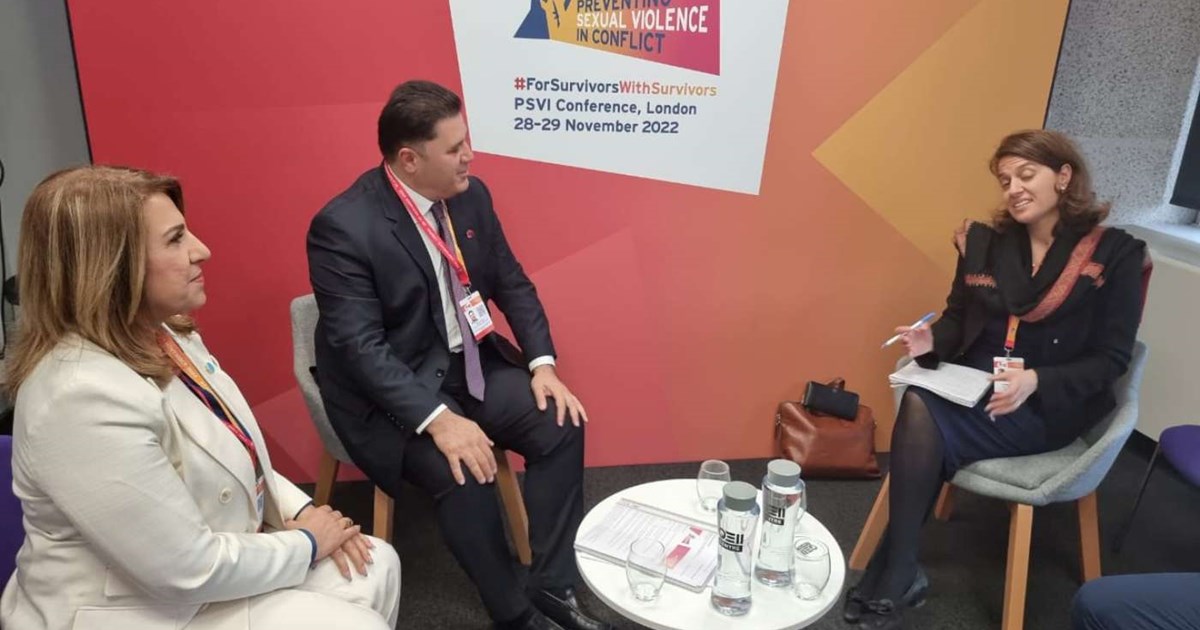KRG Coordinator and HRW’s UK Office Director Discuss Areas of Mutual Interest

Erbil, Kurdistan Region (GOV.KRD) - On the sidelines of the International Conference on the Prevention of Sexual Violence in Conflict Initiative (PSVI) in London, Dr. Dindar Zebari, the KRG Coordinator for International Advocacy met with Yasmeen Ahmad, Human Rights Watch’s (HRW) UK Office Director to discuss areas of mutual interest.
Yasmeen Ahmad raised questions about freedom of expression and IDPs. The KRG Coordinator explained that the right to freedom of expression is a bedrock democratic value which has to be unconditionally endorsed. In the past 20 year, 1,259 digital and press media obtained license: 50 websites, 138 radio stations, 958 newspapers and magazines, 31 satellite channels, and 85 local broadcast stations. Taking this figure into consideration, we can infer that out of every 778 citizens of the Kurdistan Region, one of them is a journalist. Moreover, every group of 4,901 citizens is equivalent to one electronic or press media.
To enable the citizens of the Kurdistan Region to exercise their right to obtain information with public and private institutions and to support transparency and participation to consolidate the democratic process, the Parliament of the Kurdistan Region issued the Access to Information Law No 11 (2013). Journalists and media outlets are invariably entitled to request and access data that is available to public scrutiny.
With regards to IDPs, Dr. Zebari asserted that KRG needs a considerable amount of funds and resources yearly to provide the basic services for displaced persons (IDPs) and Syrian refugees in the Kurdistan Region of Iraq. KRG has always sought to abide by the stipulations of the UN and other international bodies and conventions. This has been a firmly consistent policy. KRG ultimately deplores forced displacement and repatriation of IDPs and refugees.
On the other hand, the deteriorating security situation, instability, the presence of mines and explosive devices in those areas, and their lack of necessary daily services such as potable water, first aid, schools and electricity, has obstructed their return at the present time. Moreover, there is a large number of ISIS sleeper cells present in those areas and they pose a formidable threat to the security and stability of the liberated areas.
Yasmeen Ahmad and Dr. Dindar Zebari alluded to the cooperation between HRW and KRG Office of the Coordinator for international Advocacy in terms of information and site access facilitation to the former’s team.
